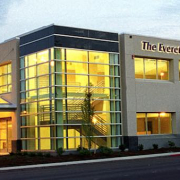Physician Job Interviewing Tips: Top 5 Dos
You’ve lined up that first interview with a hospital or recruiter. Great! But how can you ensure you’ll ace it? Here are 5 top physician job interviewing tips from physician recruiting experts Tim Mulvaney and Jonathan James at UHC Solutions. (And if you missed last week’s post, here are their Top 5 Interviewing Don’ts!)
1. Do Your Homework
The U.S. Coast Guard’s motto is “Semper paratus,” which is Latin for “always ready.” You want this to be your motto whenever you’re about to have that first physician job interview—regardless of whether it’s a family practice job, an internal medicine job, a surgery position, or anything in between.
“Know who you’re interviewing with,” says Tim Mulvaney, founder and CEO of UHC Solutions, a multi-million agency that has helped thousands of medical professionals meet their career objectives. “Look at the organization’s website, read some articles about them online. You can also compliment them when appropriate without going over the top. For instance, you might say, ‘Congratulations on reaching goal X,” or, ‘Let me ask you a question about Y.’ It’s important to do your homework and display some intellectual curiosity about the company and position.”
Says Jonathan James, one of UHC Solutions’ top recruiters, “Do your research. Understand who it is that you’re interviewing for, why they need you, what they’re looking for and make sure that honestly aligns.”
2. Do Display Confidence
“A little self-promotion is good, without going over the top,” says Mulvaney. “Statistics show that someone who’s a self-promoter will do better in interviews than a person who is reluctant to say something positive about themselves. You can play up your strengths in a non-braggadocio fashion, and doing so is far better than being a passive person who doesn’t want to say something positive about themselves.”
One good way to work your strengths into the conversation is by having statistics and quotes at the ready. If you can say, “Dr. Smith, Chief of Surgery at XYZ Hospital has said I’m a tremendous team player,” or “During the 5 years I was at XYZ Clinic… and then insert an impressive statistic,” the facts will speak for themselves.
3. Do Expect the Unexpected
According to James, it’s crucial to anticipate challenging questions and have an answer at the ready.
“I call them ‘blowout questions,’” says James. “For instance, you might get asked, ‘Why us? Why now?’ This is the type of question where, if you’re not prepared, it can really hinder your chances of moving forward. But if you have a great answer prepared, it’s an opportunity for you to exceed their expectation and increase your chances of making it to the next step—especially if they’re on the fence about you or if the odds were looking slim.”
But how can you be prepared if you don’t know what the curve ball’s going to be?
Says Mulvaney, “Do your own self-assessment. Are there any issues in your background or glaring items that you know are going to come up? For instance, ‘Are you sure you want to move from Florida to Wisconsin at this time of year?’ Be ready for the obvious questions, as well as the not-so-obvious ones, and answer without hesitation.”
4. Do Be in It to Win It
We may be living in an era where hipster cool reigns, but a blasé attitude’s not going to get you very far in a physician job interview.
“People move faster these days,” says Mulvaney, “and you’ve got to go in it to win it. You absolutely have to show enthusiasm and engagement, or you won’t be asked to complete the next step in the interviewing process. You’re there to win the day.”
“You know the saying, ‘If you play too hard to get, you don’t get gotten?’ That definitely applies to applying to any physician job. You always want so smile, bring out your personality and have intellectual curiosity.”
While you don’t want to inundate your interviewer with questions, Mulvaney says it’s good to have around three good questions lined up about 1) the culture of the organization, 2) patient productivity, and 3) the overall through-put of the organization—everything ranging from EMR to support group, scribes, etc.
5. Do End with a Wrap-Up
At the end of the meeting, be sure close with a wrap-up that summarizes the main points of the call and introduces next steps. This is your way of letting the interviewer know that you’ve heard what they’re looking for, that you’re qualified, and that you’re ready to hear what the next steps and timeline are.
“For example,” says Mulvaney, “You could say, ‘It’s been interesting speaking with you, learning more about Hospital XYZ. It sounds like you’re looking for someone who’s productive, who looks at quality as something that’s crucial and who has great patient skills. Based on my experience, I humbly believe I possess these qualities, and I remain very interested in this position. I think I’d be an excellent fit, and hopefully you saw the meeting the same way. I look forward to taking the next steps in the interviewing process. What might those be, and what is the timeline?”
With all that in mind, remember: when all is said and done, that big interview is just another meeting. Relax, and let your confidence and personality shine through.
About UCH Solutions: Founded in 1998, UHC is a world-class healthcare permanent placement firm. They’ve helped hundreds of firms and thousands of candidates meet their corporate and career objectives. See UHC Solutions’ current job openings on PhysEmp.com










